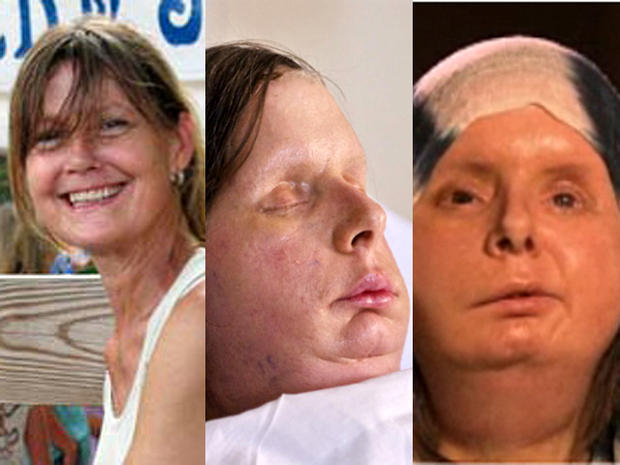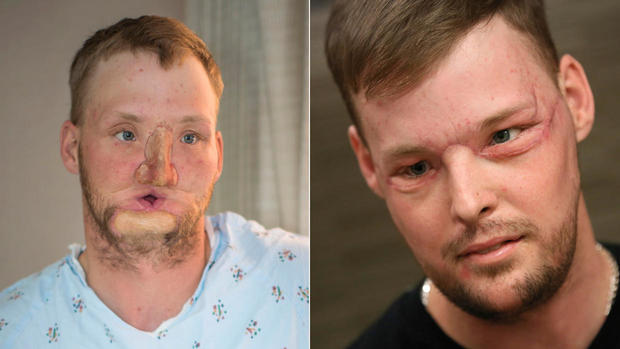Gov't may regulate face, hand transplants
(CBS/AP) The government regulates kidney, heart, and other organ transplants with waiting lists. What's next? Face and hand transplants. The nationwide system is intended to match and distribute body parts and donor testing to prevent deadly infections.
PICTURES - 7 amazing face transplants (GRAPHIC IMAGES)
It's a big step toward expanding access to these radical operations - especially for wounded troops returning home. More than 1,000 troops have lost an arm or leg in Afghanistan are preparing to offer the operations.
"These body parts are starting to become more mainstream, if you will, than they were five or 10 years ago when they were first pioneered in this country," said Dr. James Bowman, medical director of the Health Resources Services Administration, the government agency that regulates organ transplants.
Right now, waiting lists for faces, hands and other body parts are informal and local. The new rules proposed would make these transplants part of the nationwide system run by the United Network for Organ Sharing, or UNOS. The new rules would regulate transplants of feet, ankles, legs, fingers, windpipes, voice boxes, the abdominal wall and possibly even a uterus or a penis - operations tried at least once in other countries.
"When you think about the human body, there is really nothing that could not be replaced by transplantation. Almost nothing," said Dr. Bohdan Pomahac, who has done four face transplants at Brigham and Women's Hospital in Boston.
At least 18 face transplants have been done around the world, starting in 2005 with a French woman mauled by her dog. The Cleveland Clinic did the first face transplant in the U.S. in 2008. The first successful hand transplant in the United States was performed in 1999, and more than three dozen have been performed worldwide.
The U.S. Department of Defense is providing money for more of these surgeries in Cleveland and Boston in hopes of helping soldiers disfigured in battle. The University of Pittsburgh, the University of California, Los Angeles, and other medical centers plan to offer face or hand transplants soon.
How do experts feel about the proposed expansion? "It's a huge step forward in the right direction. It will make it easier for programs to get started," Pomahac said.
The federal agency will accept public comments on the rules until Feb. 14 before making a final decision. The rules are expected to take effect later this year or early next year.

